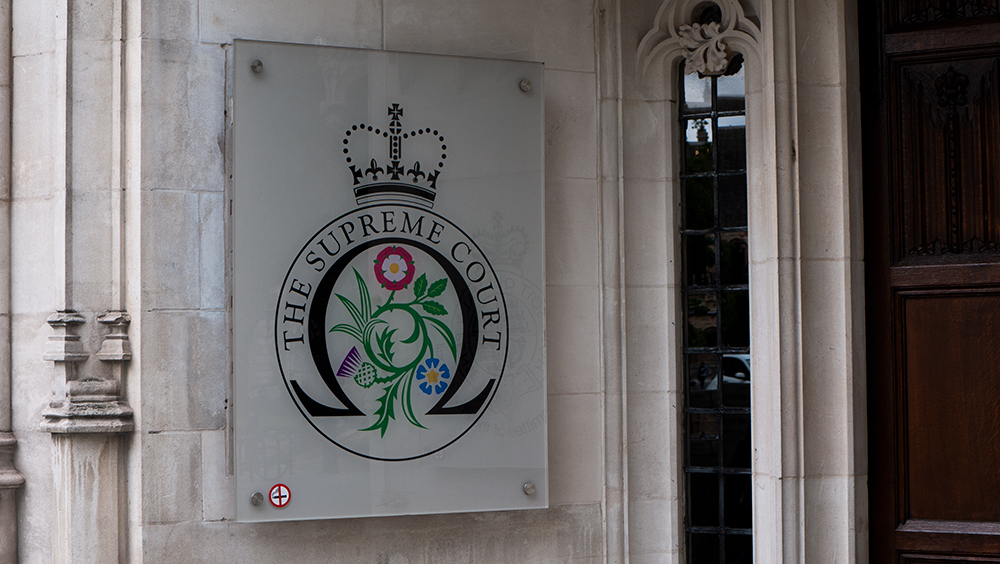Ukraine wins UK Supreme Court case concerning English court case over $3bn Russian loan

Ukraine has won a significant hurdle in a seven-year-long English court dispute over a $3 billion Russian loan, with the case now set to proceed to a full trial before the High Court.
In an 85-page judgment handed down yesterday morning, the UK Supreme Court unanimously held that the Law Debenture Trust Corporation plc, acting on behalf of the Russian Federation, is not entitled to summary judgment.
Alex Gerbi, partner at global law firm Quinn Emanuel leading the case for Ukraine, said: “Ukraine greatly welcomes this opportunity to present its case on duress to the English court on the merits, and to have a full public and impartial judicial consideration of that case, with the requirement for full disclosure by Russia in respect of its conduct towards Ukraine.”
The legal battle concerns Eurobonds which were issued by Ukraine to Russia in 2013, with a nominal value of $3 billion and carrying annual interest of five per cent. In substance this amounted to a loan of $3 billion by Russia to Ukraine, repayable in December 2015.
The Law Debenture Trust Corporation plc acted as the trustee of the notes, which were constituted by a trust deed. The trustee and Ukraine chose to have the trust deed governed by the law of England and Wales and specified that the courts of England and Wales have exclusive jurisdiction to hear any disputes arising out of it.
Ukraine maintains that it undertook the transaction following massive economic and political pressure from Russia to induce Ukraine not to enter into an association agreement with the European Union and to accept Russian financial support instead. That pressure is alleged to have been unlawful under international law and in any event illegitimate.
Shortly afterwards, Russia invaded Crimea and purported to annex it. Ukraine contends that Russia has since interfered militarily and succeeded in destabilising and causing huge destruction across eastern Ukraine. The Supreme Court heard the appeal before Russia’s invasion of Ukraine in February 2022 and has not been asked to consider the invasion or events which have followed.
Ukraine initially made some payments under the notes, but it failed to repay them when they matured on 21 December 2015. The trustee therefore issued proceedings against Ukraine, claiming the sums due to Russia.
Ukraine filed a defence which alleged, among other things, that: Ukraine lacked capacity to enter into the transaction by which the notes were issued as a matter of Ukrainian law; the Ukrainian finance minister lacked authority to enter into the transaction; Ukraine was entitled to avoid the notes because of duress arising from Russia’s unlawful and illegitimate threats and pressure, including restrictive trade measures and threats to Ukraine’s territorial integrity and independence; and Ukraine was entitled to rely on the public international law doctrine of countermeasures to decline to make payment.
A trial judge granted the trustee’s application for summary judgment, deciding in the trustee’s favour without a trial and ordering Ukraine to pay the sums due. On appeal, the Court of Appeal upheld the trial judge’s conclusions on the issues of capacity, authority and countermeasures, but held that the claim could not be decided without a trial because Ukraine had an arguable and justiciable defence of duress.
The Supreme Court today held that the trustee is not entitled to summary judgment. This means that Ukraine will be permitted to defend the claim for the sums due under the notes at trial before the High Court.
Lord Reed, Lord Lloyd-Jones and Lord Kitchin gave the majority judgment, with which Lord Hodge agreed. They hold that Ukraine should be permitted to defend the claim on the ground of duress, but only to the extent that it is based on duress of the person or of goods resulting from Russia’s alleged threatened use of force. Ukraine’s defences on the issues of capacity, authority and countermeasures should be struck out.
Lord Carnwath gave a judgment in which he agreed with the majority on the issues of capacity and authority. However, he would have allowed the defence of duress to proceed to trial on a broader basis than the majority. He also considers that the countermeasures defence should be permitted to proceed.









